第26章 CORIATACHAN IN SKY(1)
The third or fourth day after our arrival at Armidel,brought us an invitation to the isle of Raasay,which lies east of Sky.It is incredible how soon the account of any event is propagated in these narrow countries by the love of talk,which much leisure produces,and the relief given to the mind in the penury of insular conversation by a new topick.The arrival of strangers at a place so rarely visited,excites rumour,and quickens curiosity.I know not whether we touched at any corner,where Fame had not already prepared us a reception.
To gain a commodious passage to Raasay,it was necessary to pass over a large part of Sky.We were furnished therefore with horses and a guide.In the Islands there are no roads,nor any marks by which a stranger may find his way.The horseman has always at his side a native of the place,who,by pursuing game,or tending cattle,or being often employed in messages or conduct,has learned where the ridge of the hill has breadth sufficient to allow a horse and his rider a passage,and where the moss or bog is hard enough to bear them.The bogs are avoided as toilsome at least,if not unsafe,and therefore the journey is made generally from precipice to precipice;from which if the eye ventures to look down,it sees below a gloomy cavity,whence the rush of water is sometimes heard.
But there seems to be in all this more alarm than danger.The Highlander walks carefully before,and the horse,accustomed to the ground,follows him with little deviation.Sometimes the hill is too steep for the horseman to keep his seat,and sometimes the moss is too tremulous to bear the double weight of horse and man.The rider then dismounts,and all shift as they can.
Journies made in this manner are rather tedious than long.A very few miles require several hours.From Armidel we came at night to Coriatachan,a house very pleasantly situated between two brooks,with one of the highest hills of the island behind it.It is the residence of Mr.Mackinnon,by whom we were treated with very liberal hospitality,among a more numerous and elegant company than it could have been supposed easy to collect.
The hill behind the house we did not climb.The weather was rough,and the height and steepness discouraged us.We were told that there is a cairne upon it.A cairne is a heap of stones thrown upon the grave of one eminent for dignity of birth,or splendour of atchievements.It is said that by digging,an urn is always found under these cairnes:they must therefore have been thus piled by a people whose custom was to burn the dead.To pile stones is,Ibelieve,a northern custom,and to burn the body was the Roman practice;nor do I know when it was that these two acts of sepulture were united.
The weather was next day too violent for the continuation of our journey;but we had no reason to complain of the interruption.We saw in every place,what we chiefly desired to know,the manners of the people.We had company,and,if we had chosen retirement,we might have had books.
I never was in any house of the Islands,where I did not find books in more languages than one,if I staid long enough to want them,except one from which the family was removed.Literature is not neglected by the higher rank of the Hebridians.
It need not,I suppose,be mentioned,that in countries so little frequented as the Islands,there are no houses where travellers are entertained for money.He that wanders about these wilds,either procures recommendations to those whose habitations lie near his way,or,when night and weariness come upon him,takes the chance of general hospitality.If he finds only a cottage,he can expect little more than shelter;for the cottagers have little more for themselves:but if his good fortune brings him to the residence of a gentleman,he will be glad of a storm to prolong his stay.There is,however,one inn by the sea-side at Sconsor,in Sky,where the post-office is kept.
At the tables where a stranger is received,neither plenty nor delicacy is wanting.A tract of land so thinly inhabited,must have much wild-fowl;and I scarcely remember to have seen a dinner without them.The moorgame is every where to be had.That the sea abounds with fish,needs not be told,for it supplies a great part of Europe.The Isle of Sky has stags and roebucks,but no hares.
They sell very numerous droves of oxen yearly to England,and therefore cannot be supposed to want beef at home.Sheep and goats are in great numbers,and they have the common domestick fowls.
But as here is nothing to be bought,every family must kill its own meat,and roast part of it somewhat sooner than Apicius would prescribe.Every kind of flesh is undoubtedly excelled by the variety and emulation of English markets;but that which is not best may be yet very far from bad,and he that shall complain of his fare in the Hebrides,has improved his delicacy more than his manhood.
Their fowls are not like those plumped for sale by the poulterers of London,but they are as good as other places commonly afford,except that the geese,by feeding in the sea,have universally a fishy rankness.
These geese seem to be of a middle race,between the wild and domestick kinds.They are so tame as to own a home,and so wild as sometimes to fly quite away.